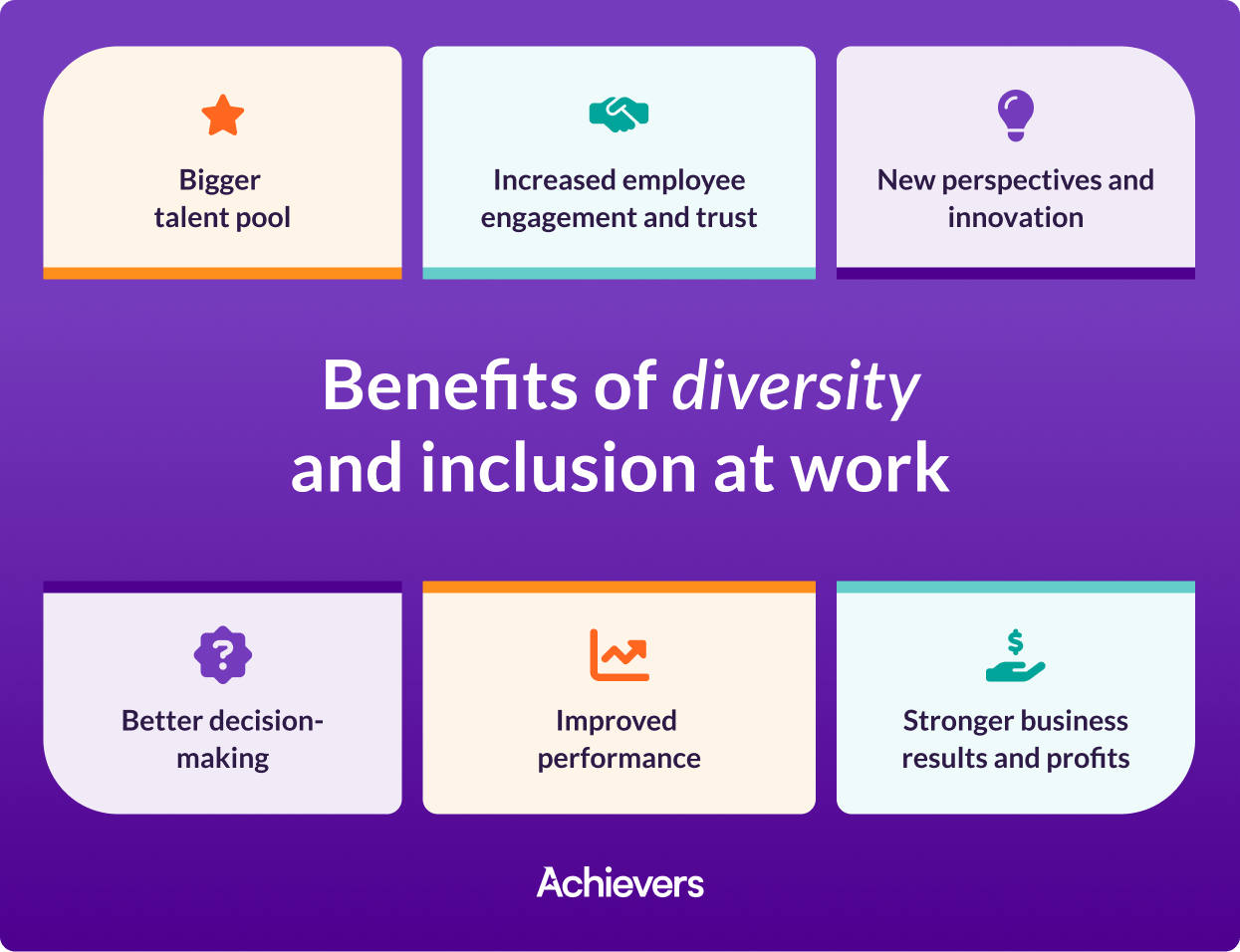Embracing Diversity: A Key to Workplace Success
In today’s fast-paced and ever-changing world, diversity and inclusion have become crucial elements in ensuring the success of any workplace. Embracing diversity means recognizing and valuing the differences in individuals, whether it be in terms of race, ethnicity, gender, age, or background. It is about creating a work environment where everyone feels welcome, respected, and valued for who they are.
Why does diversity matter in the workplace? For starters, diverse teams bring a wide range of perspectives, experiences, and ideas to the table. This diversity of thought can lead to more innovative solutions and better decision-making. When employees feel comfortable expressing their unique viewpoints, they are more likely to challenge the status quo and come up with creative solutions to problems.
Furthermore, embracing diversity can help organizations better understand and connect with a diverse customer base. By having employees from different backgrounds, organizations can gain valuable insights into the needs and preferences of a wide range of customers. This can ultimately lead to more effective marketing strategies and better customer service.
In addition, fostering diversity in the workplace can lead to increased employee engagement and retention. When employees feel like they can be themselves at work, they are more likely to be motivated and committed to their jobs. This sense of belonging can also lead to greater job satisfaction and loyalty, reducing turnover rates and saving organizations time and money on recruitment and training.

Image Source: achievers.com
But diversity alone is not enough. In order to truly reap the benefits of a diverse workforce, organizations must also focus on inclusion. Inclusion is about creating a culture where all employees feel valued, respected, and included in decision-making processes. It is about ensuring that everyone has equal opportunities for growth and advancement within the organization.
Building a culture of inclusion can lead to stronger teams and better collaboration. When employees feel included and valued, they are more likely to work together effectively and support each other. This can lead to higher levels of productivity, creativity, and overall job satisfaction.
Moreover, embracing diversity and inclusion can help organizations attract top talent. In today’s competitive job market, candidates are increasingly looking for employers who prioritize diversity and inclusion. By showcasing a commitment to creating a diverse and inclusive workplace, organizations can attract a wider pool of qualified candidates and ultimately build a stronger and more dynamic team.
In conclusion, embracing diversity and inclusion is not just a moral imperative, but also a key to workplace success. By fostering a diverse and inclusive work environment, organizations can benefit from a wide range of perspectives, increased innovation, better decision-making, improved customer relationships, higher employee engagement, and a stronger talent pipeline. Ultimately, organizations that prioritize diversity and inclusion are better positioned to thrive in today’s fast-paced and diverse business landscape.
The Power of Inclusion: Building Stronger Teams
In today’s fast-paced and ever-changing work environment, the power of inclusion cannot be underestimated. Building stronger teams through diversity and inclusion is not just a nice-to-have, but a necessity for success in the workplace. In this article, we will explore why diversity and inclusion matter in the workplace and how they can benefit both employees and organizations.
Diversity and inclusion go hand in hand when it comes to creating a positive work culture. Diversity refers to the range of differences that exist among people, including but not limited to race, gender, age, sexual orientation, religion, and socioeconomic status. Inclusion, on the other hand, is about creating a sense of belonging and respect for all individuals, regardless of their differences. When organizations embrace both diversity and inclusion, they are able to tap into the full potential of their employees and create a more innovative and productive work environment.
One of the key reasons why diversity and inclusion matter in the workplace is because they lead to stronger and more effective teams. When people from different backgrounds and experiences come together to work towards a common goal, they bring a variety of perspectives and ideas to the table. This diversity of thought is essential for problem-solving and innovation, as it allows teams to consider alternative solutions and approaches that they may not have otherwise thought of. By fostering an inclusive environment where everyone feels valued and respected, organizations can harness the power of diversity to drive creativity and drive performance.
Furthermore, diversity and inclusion can also improve employee engagement and retention. When employees feel included and valued for who they are, they are more likely to be engaged in their work and committed to the organization. This sense of belonging can lead to higher levels of job satisfaction and loyalty, reducing turnover and increasing employee morale. In addition, diverse and inclusive teams are more likely to attract top talent, as job seekers are increasingly looking for employers who prioritize diversity and inclusion in the workplace.
Another important benefit of diversity and inclusion in the workplace is the ability to better serve a diverse customer base. In today’s global economy, companies are interacting with customers and clients from all over the world, each with their own unique needs and preferences. By having a diverse workforce that reflects the diversity of their customer base, organizations are better equipped to understand and meet the needs of their clients. This can lead to increased customer satisfaction, loyalty, and ultimately, business growth.
In conclusion, the power of inclusion in the workplace cannot be overstated. By embracing diversity and fostering an inclusive work environment, organizations can build stronger teams, improve employee engagement and retention, attract top talent, and better serve their customers. In today’s competitive business landscape, diversity and inclusion are not just buzzwords – they are essential components of a successful and thriving organization. So let’s celebrate our differences, embrace inclusivity, and work together towards a brighter and more diverse future.
The Importance of Diversity and Inclusion in the Workplace